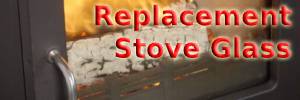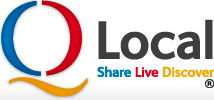Tens of thousands of patients at risk of kidney disease will be able to get tested from the comfort of their own homes as part of a £30 million tech and AI innovation fund this winter.
The Healthy.io early detection device will initially be sent to 30,000 patients who are considered most at risk for kidney disease.
Analysis suggests the device could help detect 1,300 cases of undiagnosed chronic kidney disease (CKD) over the coming months, as well as stopping some patients from developing end-stage renal disease – improving outcomes for individuals and reducing pressure on the NHS by preventing unplanned hospital admissions.
Patients place a small device in a urine sample before scanning the device into an app which gives immediate results on whether a patient may have a kidney condition. The test results are immediately uploaded to the patient’s electronic medical record for clinical review.
The National CKD Audit projects that for every 100 patients prevented from developing moderate to severe CKD through early detection, seven acute kidney injuries, six cardiovascular events, two ICU admissions and seven deaths are avoided.
The trial of the app and device in West Yorkshire is part of the £30million Health Technology Adoption and Accelerator Fund, launched by the Department of Health and Social Care and NHS England, and made available to local NHS teams to support faster deployment of promising innovations that would improve patient care by helping cut waiting lists, speed up diagnosis, or deliver new and improved ways to treat patients in time for winter.
In another scheme supported by the Fund, hundreds of older adults who are frequent users of NHS services in Norfolk and Waveney and North East London are set to benefit from wearable technology which shares vital health signs with their GP, helping identify health problems earlier.
The ‘Feebris kit’ monitors blood pressure and heart rates through a digital stethoscope, and can alert the patient’s GP if they have a fall.
It means older people who spend more time in hospital can feel more confident in their health, reducing the need for them to attend NHS services.
The launch of the innovations follows almost a year of work by the NHS to prepare for this winter, which has seen hundreds of new staff - including paramedics - joining the emergency care workforce alongside the rollout of thousands of virtual ward beds and ‘care traffic’ control centres.
It comes as the NHS faces another difficult winter, with latest data showing there are increasing numbers of people in hospital with flu, norovirus and Covid, compared to the previous week.
Dr Vin Diwakar, Medical Director for Transformation, said: "The NHS is constantly looking for innovative solutions that will free up clinical time and improve care for patients, and the plans we have been able to support promise to do exactly that.
"Whether by detecting potentially life-threatening conditions like chronic kidney disease earlier from the comfort of people’s homes, or supporting GPs to monitor changes in patients’ health and detect when they have falls, this latest push is another example of how local NHS teams are embracing the latest tech to improve care for their communities.
"While these innovations will be of huge benefit to patients and staff, they will also help keep people out of hospitals during what we anticipate will be another busy winter for the NHS.
“So our message is as always - if you have a health concern please come forward for care as soon as you can, either by calling NHS 111 for urgent medical advice, or 999 in life-threatening emergencies."
Health and Social Care Secretary Victoria Atkins said: “We provided £30 million this winter to roll out innovative medical technology to ease pressure on the NHS – and it’s already having an impact.
“This kidney disease device has saved lives and could help to identify thousands more cases – while hundreds of elderly patients will be able to identify health issues more quickly thanks to wearable technology.
“Moving forward, I’m focused on adopting the latest cutting edge technology to ensure patients can receive faster and simpler care in the comfort of their homes and cut down on unnecessary trips to hospital.”
Some of the other technologies Iocal areas have received Health Technology Adoption and Accelerator Funding to implement include:
- BRAVE AI being used in primary care to identify patients who may be at risk of their wellbeing declining to the point of needing to go to hospital.
- Docobo is a telehealth system which supports people to monitor and maintain their own physical health at home.
- Whzan supports the set-up of virtual wards enabling the capture of critical health metrics like oxygen levels and heart rates.
Verena Stocker, Interim Director of Innovation, Research, Life Sciences and Strategy, NHS England said: “Every winter the NHS faces high demand with innovations helping to relieve pressure and provide ground-breaking early diagnosis, monitoring, and treatments.
"Innovations like those supported by this fund transform individual patient lives as well as bring significant benefits to the UK economy and to society as a whole.”
Fiona Loud, Policy Director of Kidney Care UK, said: “About 3.5 million people in the UK have moderate to advanced kidney disease yet we know many will not be aware of it. This number is expected to grow significantly over the coming decade because of an ageing population, increasing prevalence of type 2 diabetes and high blood pressure. When we asked them recently, people with kidney disease told us clearly that they want to take control of their kidney health.
“Yet detection is much lower than it should be, putting lives at risk and causing unnecessary pressure to the NHS. We really welcome tools to make identification more convenient, to reduce the harm of CKD and risk of further deterioration and kidney failure. The home test can then open up a talk about kidney health between people at risk and primary care and give access to information, advice and treatments as appropriate.”
|
|
||||||
Check Todays Deals on Ebay.co.uk Your Comments:
Custom Search

|
You are in:
UK /
Tewkesbury / South West
Find any Town in the UK, or Use UK map Local Google MAP for Tewkesbury Check Todays Deals On Amazon.co.uk Check Todays Deals on Ebay.co.uk 


 Be Seen - Advertise on Qlocal Corporate Sponsors
Southport Piano and Music Academy Washroom Services Maximum Grounds Maintenance Southport Garden Services Ormskirk Garden Services Sanitary Bins Nappy Bins & Waste Disposal Confidential Shredding Services Legionella Risk Testing London Washroom Services Croydon Washroom Services Hounslow Washroom Services Wandsworth Washroom Services Havering Washroom Services Sanitary Bins London Clinical Waste London General Waste London Legionella Testing London Shredding London Tatoo Waste London Preston Bird Control Blackpool Bird Control
UK, Local Online News Community, Forums, Chats, For Sale, Classified, Offers, Vouchers, Events, Motors Sale, Property For Sale Rent, Jobs, Hotels, Taxi, Restaurants, Pubs, Clubs, Pictures, Sports, Charities, Lost Found
tewkesbury,
tewkesbury News,
|
|||||




 Reply With Quote
Reply With Quote